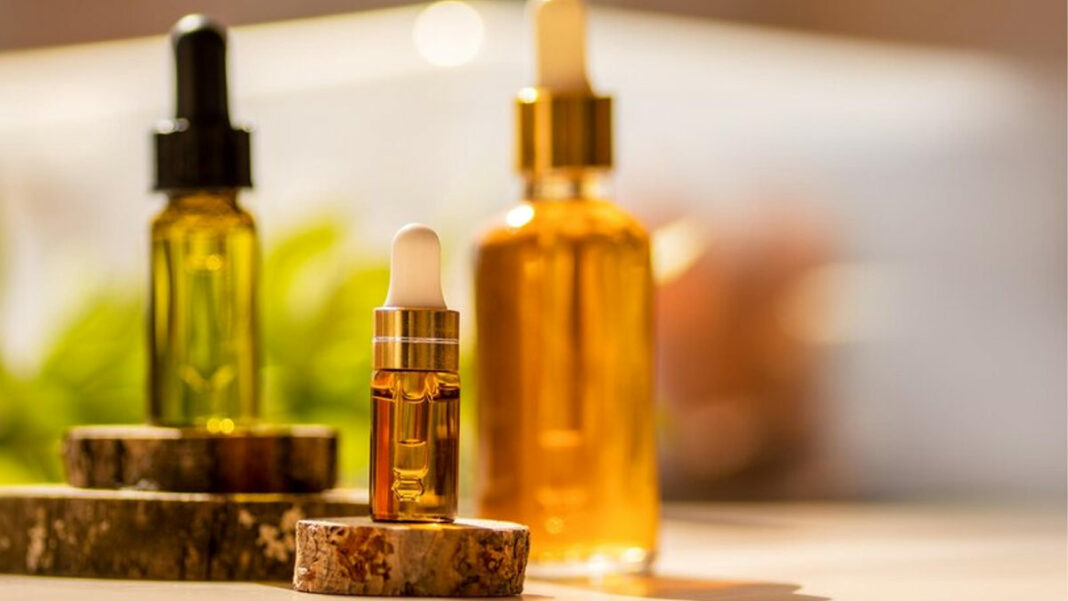You must have heard about the use of carrier oils in aromatherapy and skincare. But what are carrier oils and how do you choose one for your skin? Carrier oils are different from other oils as they are base oils, diluted with essential oils and other concentrated substances before applying them to the skin. Generally, carrier oils are used in lotions, creams, and serums. We spoke to Dr Asmita Dhekne Chebbi, MBBS, MD-Dermatology, Venereology and Leprosy, Cosmetologist, Apollo Spectra Hospital, Bengaluru, who explained the best way to choose and use carrier oils for your skin. Carrier oils are usually vegetable oils made from the seeds, kernels, or nuts of a plant, like avocado or coconut oil. Having a mild or no scent, carrier oils allow the aroma of the essential oil to dominate. According to a 2008 study, carrier oils improve the absorption of essential oils through the skin and offer lubrication, enabling the therapist’s hands to glide smoothly over the client’s skin. Additionally, certain carrier oils possess their own beneficial and therapeutic properties. How to use Carrier Oils “Select the right carrier oil based on the sensitivity and skin texture. For dry skin, heavier, moisturising oils, such as avocado oil, and sweet almond oil are used. Whereas for oily or acne skin, opt for lighter, non-comedogenic oils like jojoba oil, grapeseed oil, or argan oil and for sensitive skin opt for coconut oil, apricot kernel oil, or rosehip oil,” said Dr Chebbi. After cleansing your skin, pour a small amount of carrier oil into the palm of your hand and gently mix them together to warm the oil and then apply it to the desired areas of your skin. Also Read: Essential Oils For Psoriasis: Expert Explains Role Of Essential Oils For Managing Psoriasis Symptoms Types and uses of Carrier Oils Here are types of carrier oils and their uses, as listed by Dr Chebbi: Almond oil: It is rich in vitamins E and K, which help in maintaining skin elasticity and reducing the appearance of fine lines and wrinkles. Not only this, it also helps moisturise the skin. Argan oil: It hydrates and softens the skin, making it suitable for all skin types. Its antioxidant properties reduce anti-ageing. Coconut oil: It contains compounds that may help to reduce inflammation, making it beneficial for soothing irritated or inflamed skin. It is less likely to clog pores compared to other oils, making it suitable for a wide range of skin types. It also has antibacterial and antifungal properties which helps in reducing the risk of infections. Jojoba oil: It is suitable for sensitive skin types and provides relief from conditions like sunburn. Helps in regulating sebum production in oily skin, which can reduce breakouts and keep skin balanced. What You Should Know Dr Chebbi said, “You should always dilute essential oils with a carrier oil (jojoba, almond, or coconut oil) before applying to the skin. Also, avoid sun exposure because few essential oils can cause rashes and damage the skin. The dilution ratio is 1-2 drops of essential oil per teaspoon of carrier oil. This dilution helps to safely deliver the benefits of essential oils along with the skin-nourishing properties of carrier oils.” Skin Safety Concerns “It is always advisable to carry out a patch test on a small area of skin to check for any adverse reactions before widespread use. Consult with a doctor before using essential oils during pregnancy or if there are any allergies,” said Dr Chebbi. She added, “The combination of carrier and essential oils can be tailored for various applications, such as massage, skincare, and aromatherapy. This synergy not only enhances the therapeutic and cosmetic benefits but the appropriate blending techniques maximise the benefits of these natural products.” [Disclaimer: This article contains information provided by an expert and is for informational purposes only. Hence, we advise you to consult your expert before using anything on your skin, especially if you are dealing with any skin issues.]Read NextShould Your Nighttime Skincare Routine Include Vitamin C? Know From A DermatologistDisclaimer All possible measures have been taken to ensure accuracy, reliability, timeliness and authenticity of the information; however Onlymyhealth.com does not take any liability for the same. Using any information provided by the website is solely at the viewers’ discretion. In case of any medical exigencies/ persistent health issues, we advise you to seek a qualified medical practitioner before putting to use any advice/tips given by our team or any third party in form of answers/comments on the above mentioned website.
Carrier Oils: Expert Lists How To Choose And Use These Oils For Your Skin
